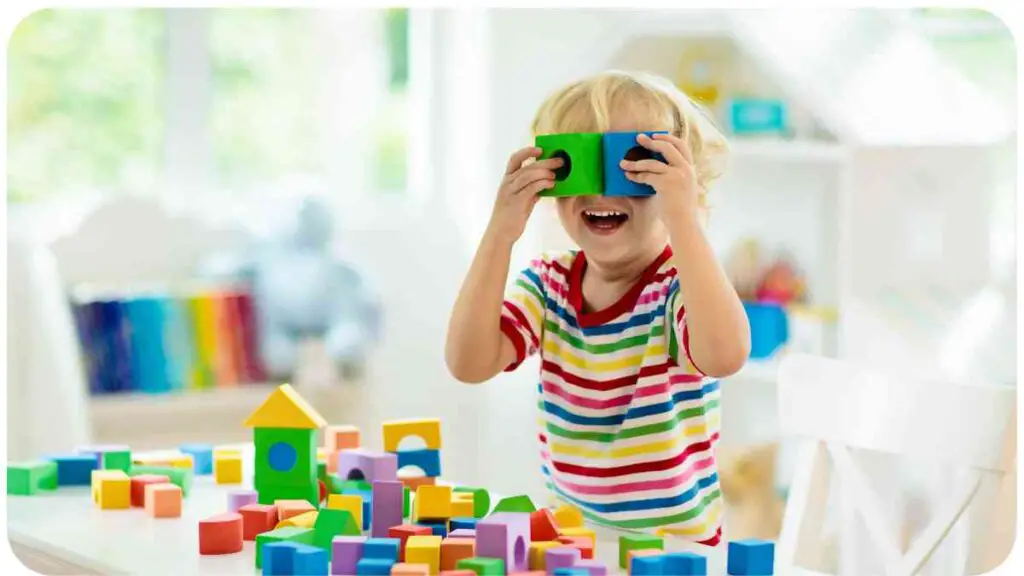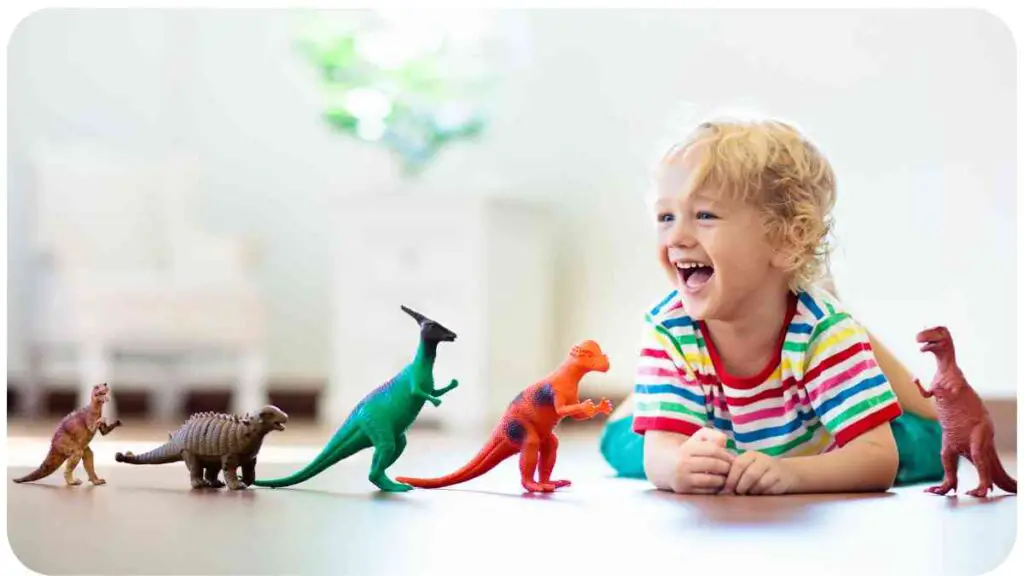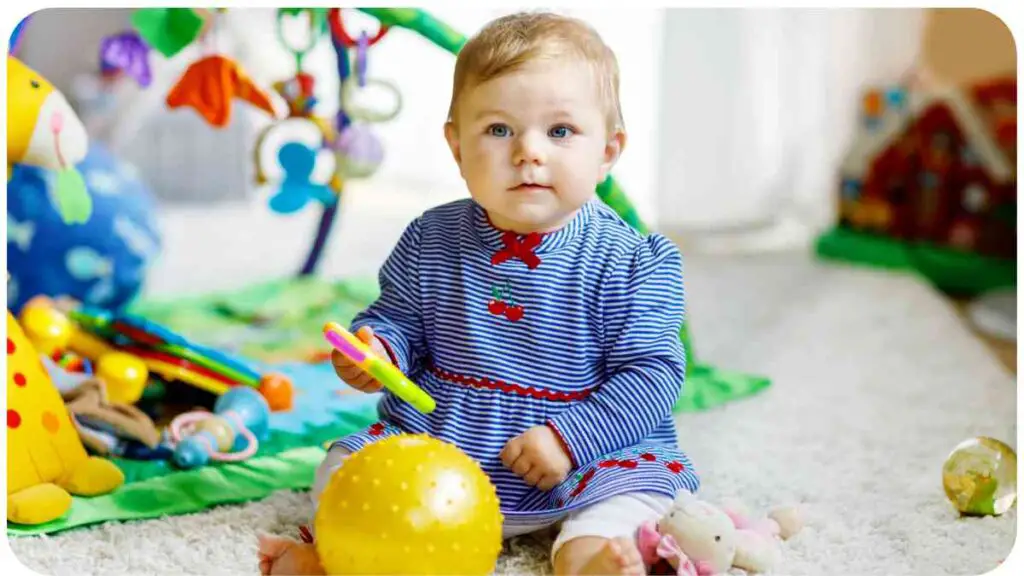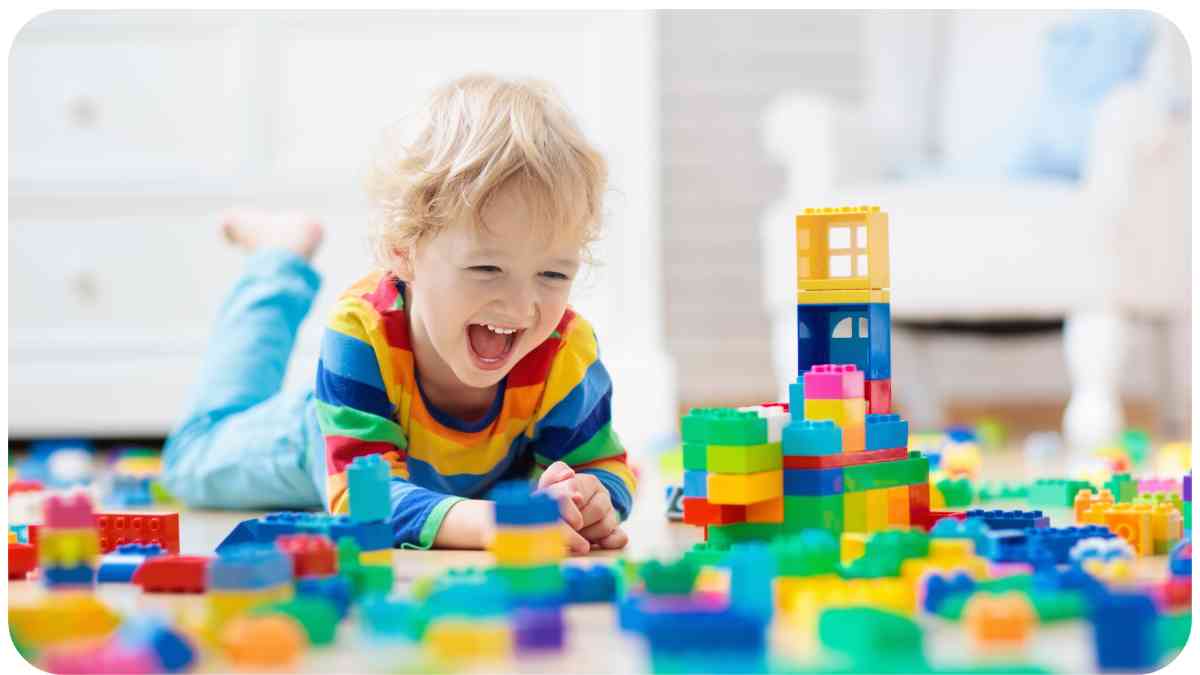As parents and caregivers, understanding the importance of child development is paramount. One aspect that plays a significant role in a child’s growth is sensory play. In this article, we aim to explore the significance of sensory toys and their contribution to a child’s development in various domains.
By incorporating our expertise and personal experiences, we will delve into the benefits of sensory toys and provide insights into choosing the right ones for your child.
| Takeaways |
|---|
| Sensory play is an important aspect of child development. |
| Sensory toys engage multiple senses, supporting cognitive, physical, social, and emotional development. |
| Sensory play can benefit children with special needs, providing therapeutic sensory input and promoting self-regulation. |
| Incorporating sensory elements into everyday activities enhances sensory experiences for children. |
| DIY sensory toys can be cost-effective and provide engaging sensory play opportunities. |
2. What are Sensory Toys?
Sensory toys are specially designed playthings that stimulate a child’s senses, allowing them to explore different textures, sounds, colors, and movements. These toys engage multiple senses and provide a unique sensory experience, fostering learning and development in children of all ages. Sensory toys can vary from simple objects like textured balls or musical instruments to more complex items such as activity boards or interactive play systems.
“Sensory toys play a pivotal role in nurturing a child’s cognitive and motor skills. If you’re new to this topic, the importance of sensory toys for toddlers offers an insightful beginner’s guide.”
3. The Role of Sensory Toys in Child Development

The use of sensory toys in child development is crucial as they encourage exploration, imagination, and learning. When children engage with sensory toys, they are not only having fun but also developing various skills simultaneously. These toys promote cognitive, physical, social, and emotional development. Let’s dive into each of these domains and understand how sensory toys contribute to the growth of a child.
4. Enhancing Cognitive Skills through Sensory Toys
Cognitive development refers to the mental processes and abilities related to acquiring knowledge, problem-solving, memory, and attention. Sensory toys provide excellent opportunities for children to enhance their cognitive skills. The following table showcases some examples of sensory toys that can support cognitive development:
“When selecting toys for your toddler, it’s essential to prioritize their developmental needs. To ensure you’re making the best choice, dive deep into the guide on how to choose the right sensory toys for your child.”
| Sensory Toys for Cognitive Development |
| Toy Category |
| Textured Puzzle |
| Musical Instruments |
| Sensory Books |
| Sorting and Stacking Toys |
| Problem-Solving Games & Puzzles |
By using these toys, children engage their senses while improving their problem-solving abilities, spatial awareness, hand-eye coordination, and logical thinking. Through interactive play, they develop skills that are essential for their future academic and personal growth.
5. Promoting Physical Development with Sensory Toys

Physical development encompasses a child’s gross and fine motor skills, coordination, and body awareness. Sensory toys play a vital role in promoting physical development by encouraging movement, muscle strengthening, and coordination. Here are some examples of sensory toys that support physical development:
| Sensory Toys for Physical Development |
| Toy Category |
| Balance Boards |
| Sensory Balls |
| Fine Motor Tools |
| Bubble Machines |
| Obstacle Course Playsets |
These toys engage children in activities that improve their muscle tone, coordination, balance, and spatial awareness. Additionally, they enhance their hand-eye coordination and fine motor skills, preparing them for tasks such as writing, tying shoelaces, and self-care activities.
6. Fostering Social and Emotional Development with Sensory Toys
Sensory toys also play a crucial role in fostering social and emotional development in children. These toys provide opportunities for children to engage in imaginative play, express themselves, and develop empathy and social skills. Take a look at some sensory toys that support social and emotional development:
“Choosing the appropriate toys for children with special needs can be challenging. To better equip yourself with the essential knowledge, explore the sensory toy basics for parents of children with special needs.”
| Sensory Toys for Social and Emotional Development |
| Toy Category |
| Play Kitchen Sets |
| Soft Toys and Puppets |
| Emotion Cards or Feelings Books |
| Sensory Bins |
| Cooperative Games or Team Sport Toys |
Through imaginative play with these toys, children develop their emotional intelligence, empathy, problem-solving skills, and the ability to cooperate with others. Sensory toys provide a safe and enjoyable context for children to explore and express their feelings while interacting with peers or caregivers.
7. Sensory Toys for Children with Special Needs
Sensory toys are particularly beneficial for children with special needs as they can support their unique developmental requirements. These toys can help children with conditions such as autism spectrum disorder, ADHD, sensory processing disorder, or developmental delays. Here are some sensory toys tailored for children with special needs:
| Sensory Toys for Children with Special Needs |
| Toy Category |
| Fidget Toys |
| Weighted Blankets |
| Sensory Integration Toys |
| Visual Stimulation Toys |
| Sensory Swing or Hammock |
These toys offer sensory regulation, comfort, and engagement to children with special needs. They can assist in managing anxiety, improving focus and attention, and promoting overall well-being.
8. How to Choose the Right Sensory Toys for Your Child

Choosing the right sensory toys for your child can greatly enhance their engagement and development. Here are some factors to consider when selecting sensory toys:
“Sensory toys are more than just playthings; they are tools that shape a child’s future. Discover how sensory toys can enhance your child’s development through this comprehensive resource.”
| Factors to Consider when Choosing Sensory Toys |
| Factor |
| Age Appropriateness |
| Individual Preferences |
| Safety Features |
| Skill Development |
| Sensory Stimulation |
| Quality and Durability |
By taking these factors into account, you can find sensory toys that suit your child’s individual needs and preferences, ensuring a positive and enriching play experience.
9. Incorporating Sensory Play into Everyday Activities
In addition to dedicated sensory playtime, it is beneficial to incorporate sensory experiences into everyday activities. This can be achieved through simple modifications or additions to existing activities. For instance, you can spice up bath time with colorful bath toys or introduce sensory-rich materials like sand, kinetic sand, or playdough during playtime. By infusing sensory elements into everyday routines, you provide continual opportunities for your child to engage and develop their senses.
10. Making Sensory Toys at Home
Creating sensory toys at home can be a rewarding and cost-effective way to engage your child in sensory play. Using common household items, you can make simple yet effective sensory toys. Here are some examples of DIY sensory toys you can easily create:
“Emotional balance and self-regulation are foundational skills for every child. Learn about the impact of sensory toys on self-regulation and emotional development to provide your child with the best tools for growth.”
| DIY Sensory Toys |
| Toy |
| Sensory Bottles |
| Texture Exploration Bags |
| Rice or Pasta Sensory Bins |
| Sensory Playdough with Natural Scents |
| Sensory Wall with Different Textures |
These homemade sensory toys can provide hours of entertainment and stimulation for your child while nurturing their creativity and fine motor skills.
11. Precautions and Safety Tips when Using Sensory Toys
While sensory toys offer numerous benefits, it is important to ensure safety during play. Here are some precautions and safety tips to keep in mind:
- Always supervise your child during sensory play to prevent accidents or ingestion of small parts.
- Regularly inspect toys for any signs of wear or damage, and replace them as needed to maintain safety.
- Read and follow the manufacturer’s age recommendations and safety guidelines for each toy.
- Avoid toys with sharp edges or potential choking hazards.
- Clean and sanitize sensory toys regularly to maintain hygiene.
- Seek guidance from professionals or therapists if your child has specific sensory needs or conditions.
By prioritizing safety and following these guidelines, you can create a secure and enjoyable sensory play environment.
12. Sensory Toy Recommendations and Reviews
When it comes to selecting sensory toys for your child, it can be overwhelming with the multitude of options available. To assist you in the decision-making process, we have compiled a list of top-rated sensory toys that have received positive reviews from parents and caregivers. Please refer to the table below:
| Top-rated Sensory Toys for Child Development |
| Toy |
| Sensory Bubbles Kit |
| Rainbow Sound Blocks |
| Kinetic Sand |
| Sensory Light Projector |
| Sensory Bean Bags |
| Tactile Sensory Balls |
These top-rated sensory toys have been highly recommended by parents for their effectiveness in promoting child development and providing engaging sensory experiences.
13. Real-life Success Stories and Testimonials
Now, let’s hear some real-life success stories and testimonials from parents who have witnessed the positive impact of sensory toys on their children’s development:
- “My daughter, who has autism, struggled with sensory sensitivities. Introducing sensory toys into her routine not only helped her regulate herself but also improved her social skills and ability to focus.”
- “As a speech therapist, I often incorporate sensory toys into my sessions. The children I work with show increased engagement and language development when using these toys.”
- “My son with ADHD found it challenging to sit still and concentrate. Sensory fidget toys have been a game-changer for him, as they provide the sensory input he needs to stay focused and calm.”
- “We introduced sensory play with various textures to our toddler, who had delayed fine motor skills. It helped him strengthen his grip and improved his hand-eye coordination.”
These success stories illustrate the positive impact of sensory toys on children’s development, highlighting their effectiveness in addressing specific needs and challenges.
14. Conclusion
Sensory toys play a vital role in child development, encompassing cognitive, physical, social, and emotional aspects. By engaging multiple senses, these toys provide children with rich sensory experiences that enhance their learning and growth.
Whether it’s through problem-solving puzzles, balance boards for physical development, or pretend play kitchen sets for social skills, sensory toys offer endless possibilities for exploration and development.
When choosing sensory toys, consider your child’s age, individual preferences, and developmental goals. Ensure the toys are safe, durable, and provide the right sensory stimulation. Incorporate sensory play into everyday activities and consider making DIY sensory toys at home to further enhance your child’s engagement.
Through the recommendations of top-rated sensory toys and real-life success stories, we hope to inspire and guide you in utilizing sensory toys for your child’s optimal development. Embrace the power of sensory play and witness the incredible growth and joy it brings to your child’s life.
Further Reading
Here are some additional resources you can explore to learn more about the importance and benefits of sensory play:
- Sensory Play – Olivia’s Place: This article discusses the various benefits of sensory play and provides ideas for incorporating it into everyday activities.
- The Benefits of Sensory Play – Empowered Parents: Learn about the cognitive, physical, and emotional benefits of sensory play, along with practical tips for implementing sensory activities at home.
- What is Sensory Play and Why is it Important? – Action for Children: Discover the importance of sensory play in child development and how it supports the development of essential skills.
FAQs
Here are some frequently asked questions about sensory toys and play:
What are sensory toys?
Sensory toys are playthings specially designed to engage a child’s senses, providing tactile, visual, auditory, or olfactory stimuli. These toys promote sensory exploration and stimulate various areas of a child’s development.
How do sensory toys benefit child development?
Sensory toys offer numerous benefits by stimulating different senses and promoting cognitive, physical, social, and emotional development. They enhance skills such as problem-solving, fine motor control, coordination, social interaction, and emotional regulation.
At what age can children start using sensory toys?
Children can start using sensory toys from infancy and continue throughout childhood. Sensory experiences are beneficial for children of all ages, providing appropriate toys and activities tailored to their developmental stage.
Can sensory toys help children with special needs?
Yes, sensory toys can be particularly beneficial for children with special needs. These toys can help children with conditions such as autism, ADHD, or sensory processing disorder by providing therapeutic sensory input and promoting self-regulation.
How can I incorporate sensory play into everyday activities?
Incorporating sensory play into everyday activities can be as simple as introducing textures during bath time, incorporating sensory bins during play, or playing with objects with varying tactile properties. By adding sensory elements to daily routines, you can offer continual opportunities for your child to engage their senses.

Meet Hellen James, the multi-talented writer and nurturing mother who takes young readers on a thrilling journey through her sensory-infused blog. Drawing inspiration from her own experiences as a parent.

